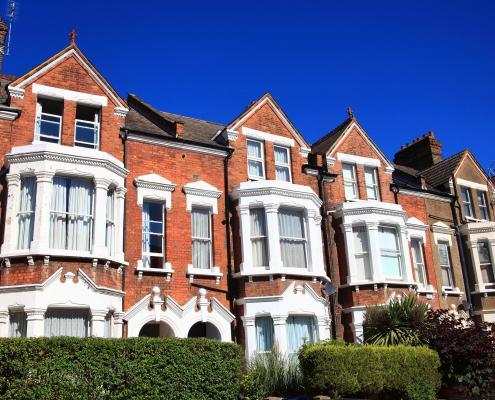
Wills, Probate and Administration of Estates
Many people put off making a will. However, if you die without one, your assets may be distributed according to the law rather than in accordance with your wishes.
Making a will is particularly important for cohabiting couples and those with children from previous relationships.
You should also plan ahead to avoid paying more inheritance tax than is necessary. After death the deceased’s assets must be collected, debts paid and legacies paid to beneficiaries. We can undertake this work on behalf of the estate and remove any unnecessary stress during what can be a difficult time.
A will may be contested or those persons not provided for in a will or intestacy may lodge a claim. Contested wills and estates can be an extremely complicated area of law.
Sometimes people wish to plan ahead and set out in advance what they would like to happen should they become unable to make decisions for themselves in the future. A Lasting Power of Attorney (LPA) is an important legal document that enables a person who has capacity and is over 18 to choose another person or people to make decisions on their behalf.
The elderly may need advice on care fees planning, asset preservation and Court of Protection Issues.
Whatever your situation we can provide you with sound practical advice.
Making a Will
Making a Will is important for everyone. It is of particular importance for those who are unmarried, those with step children or young children, those with substantial estates or those who would wish their estate to be dealt with in a way which is at all out of the ordinary.
Making a Will means you can choose who inherits your estate. If you do not make a Will then the law decides. This may mean that what actually happens does not adequately reflect your wishes. For example your husband or wife will not automatically inherit the whole of your estate. If you are not married then your partner will not inherit anything.
You can also arrange specific gifts to specific people. You can name executors to ensure your wishes are met. You can also appoint guardians for your young children. You can express your wishes in relation to your funeral and you can arrange your affairs to minimise the impact of inheritance tax or care home fees on your estate.
Our experienced solicitors will be happy to meet with you to discuss your exact requirements.
Reviewing Existing Wills
We recommend that people who already have a Will review its content at least every 5 years to ensure it still complies with their wishes.
The Will should be renewed more often if there are significant changes in the family or financial situation. Significant financial changes could include retirement, inheriting a substantial amount of money or even winning the lottery!
Significant family changes might involve the birth of children or grandchildren. Equally it might be the death of a close family member. Other family changes could include a divorce within the family or children reaching adulthood, which might affect your views on their inheritance.
Asset Protection
It is natural that many people want to ensure that their assets are protected for the next generation.
Residential care home fees can have a significant impact on assets, please contact us if you would like advice on ways of minimising the future impact of residential care home fees on your assets. We recommend you take action well in advance of needing care.
Asset Protection strategies can also be used to reduce the impact of Inheritance Tax on your estate.
Furthermore, if you have been awarded compensation for Personal Injury, Asset Protection strategies can be used to lessen the impact of this on any means tested benefits.
Probate and Administration of Estates
Many people find the administration of the estate of a loved one time consuming, problematic and upsetting. Our experienced solicitors are available to discuss and assist with all aspects of Probate & Estate Administration. This can include applying for Probate, collecting in and distributing the assets and dealing with any issues that arise.
Lasting Powers of Attorney
An estimated 850,000 people in the UK have dementia and the number is expected to rise steadily. Studies have shown that 2/3rds of people over 55 have made Wills but far fewer have put plans in place for when they cannot make decisions for themselves. A Lasting Power of Attorney is a legal agreement that authorises family members, friends or professionals to act in our place in case the day arises when we become incapable of acting for ourselves, whether this be due to frailty of old age or the loss of capacity. It may seem complicated and costly but if you fail to make one then your relatives will have a much harder time if you were to lose capacity and will have to apply to the Court of Protection to be appointed as your deputy to deal with your affairs. This is a very long drawn out and far costlier procedure. It is therefore wise to sort out in advance who you would like to deal with your affairs.
You can only make an LPA when you have the capacity to make your own decisions. There are two types – one to cover your money called “Property and Financial Affairs” and one covering your “Health and Welfare” which for example allows someone to decide if you are to go into a care home or what medical treatment you are to receive. You can make either or both.
Once drafted the LPA has to be registered before it has any effect and this has to be done whilst the donor (the person granting the power) still had mental capacity. Only once it is registered can the Attorneys act for the donor but usually the registered document will be stored away and only brought out when the donor wants the attorney to act.
An attorney must act in the donor’s best interest and so it is vital that you choose someone you trust completely. Anyone who suspects an attorney is abusing their powers can complain to the Office of the Public Guardian who will investigate further.
It is a fact that people live longer these days and as such more of us will have a period of physical and mental dependency late in life. It is therefore important that we all consider making such a document and put our affairs in order. For more information please contact the Probate Department of Hadaway & Hadaway on 0191 2729065.
Why will registration is the way forward for peace of mind.
For many years solicitors and others in the industry have voiced their opinion that there should be a national wills register to avoid the problems caused when a will cannot be located after someone’s death, or when the relatives do not even know if a will is in existence at all. In a recent survey, 67% of people did not know the location of their parents’ wills. If the will cannot be located at the time of a person’s death then their estate will instead pass under the standard rules of intestacy which often does not accord with the person’s wishes.
Certainty has now introduced a National Wills Register which is used by thousands of solicitors across the UK to register the location of a person’s will. It includes the facility for the register to be searched to find the location of a particular person’s will. This means that should the location of a will be forgotten over the passage of time or be unknown for some other reason, such as a person having relocated out of the area, the national register can be searched to find its location. This offers peace of mind that your will can be easily located and your estate will be distributed in accordance with your wishes and not under the intestacy rules.
We can arrange for your will to be registered on the National Wills Register.
Please contact our Asset Protection Department for further details on 0191 272 9065.
Applying for the grant, collecting and distributing the assets
We anticipate this will take between 5 and 25 hours work at £272.00 per hour. Total costs estimated:
- from £1,360.00 plus £272 VAT@20% totaling £1,632 (plus disbursements)
- to £6,800.00 plus £1,360 VAT@20% totaling £8,160 (plus disbursements)
The exact cost will depend on the individual circumstances of the matter. For example, if there is one beneficiary and no property, costs will be at the lower end of the range. If there are multiple beneficiaries, a property and multiple bank accounts, costs will be at the higher end.
Additionally we are entitled to make a charge according to the value of the assets of the estate, according to Law Society Guidelines as follows:
- Non Solicitor acting as Executor: 1.0% of the gross estate less property or land, plus 0.5% of the property or land.
- Solicitor as Executor: 1.5% of the gross estate less property or land, plus 0.75% of property or land.
This charge is intended to reflect the value of the Estate, the complexity issues, the speed at which action has to be taken, any particular expertise which may be needed, the responsibility accepted by the firm in undertaking the administration. Most firms of Solicitors charge for Probate in this manner as it is fairer to clients. If the value element were not applied to reflect the risk taken by the firm then it is likely that a higher charging rate would be applied which would prove very unfair where estates are of a more modest value.
We will handle the full process for you. This quote is for estates where:
- There is a valid Will
- There is no more than one property
- There are no more than 5 bank or building society accounts
- There are no other intangible assets
- There are 1 – 5 beneficiaries
- There are no disputes between beneficiaries on division of assets. If disputes arise this is likely to lead to an increase in costs
- There is no inheritance tax payable and the executors do not need to submit a full account to HMRC
- There are no claims made against the estate
- All assets, beneficiaries and executors are in the UK
Disbursements which may be payable in addition to the above fee:
- Probate application fee of £300.00
- £7.00 Swearing of the oath (per executor)
- Bankruptcy only Land Charges Department searches (£2 per Beneficiary/Executor/Legatee)
- £92.00 Post in The London Gazette – Protects against unexpected claims from unknown creditors.
- £128.00 Post in a Local Newspaper (This figure represents the Newcastle Chronicle but is subject to change and is based on the
Local Newspaper used) – This also helps to protect against unexpected claims.
Disbursements are costs related to your matter that are payable to third parties, such as court fees. We handle the payment of the disbursements on your behalf to ensure a smoother process.
Potential additional costs
- If the Will contains a Discretionary or Life Interest Will Trust
- If there is no valid will or the estate consists of any share holdings (stocks and bonds) there is likely to be additional costs that could range significantly depending on the estate and how it is to be dealt with. We can give you a more accurate quote once we have more information.
- If any additional copies of the grant are required, they will cost £1.50 (1 per asset usually).
- Dealing with the sale or transfer of any property in the estate is not included.
- Tracing missing beneficiaries
- Preparation and submission (excluding IHT 205) of Tax Returns
- House clearance, house visits, additional requests by Executors and/or Beneficiaries
How long will this take?
On average, estates that fall within this range are dealt with within 12-24 months. Typically, obtaining the grant of probate takes 4-12 months. Collecting assets then follows, which can take between 2 – 4 months. Finalising tax can take between 3-6 months. Once this has been done, we can distribute the assets, which normally take 1 -2 months.
Probate
We can help you through this difficult process by obtaining the Grant of Probate on your behalf to enable you to deal with all matters following the Grant of Probate.
How much does this service cost?
TOTAL: fixed fee of £750.00 plus £150 VAT@20% totaling £900 (plus disbursements).
This includes obtaining the Grant of Probate only.
Disbursements:
-
- Probate court fee of £300.00 plus £1.50 for each Office Copy
- £7.00 Swearing of the Oath (per Executor)
Disbursements are costs related to your matter that are payable to third parties, such as court fees. We handle the payment of the disbursements on your behalf to ensure a smoother process.
As part of our fixed fee we will:
- Provide you with a dedicated and experienced probate solicitor to work on your matter
- Identify the legally appointed executors or administrators and beneficiaries
- Accurately identify the type of Probate application you will require
- Complete the Probate Application and the relevant HMRC forms
- Draft a legal oath for you to swear
- Make the application to the Probate Court on your behalf
- Obtain the Probate and securely send two copies to you
On average, estates that fall within this range are dealt with within 3 – 6 months.
This service is not available for homemade Wills or estates which may be liable to inheritance tax or would require the submission of tax form IHT400 and associated schedules.


















